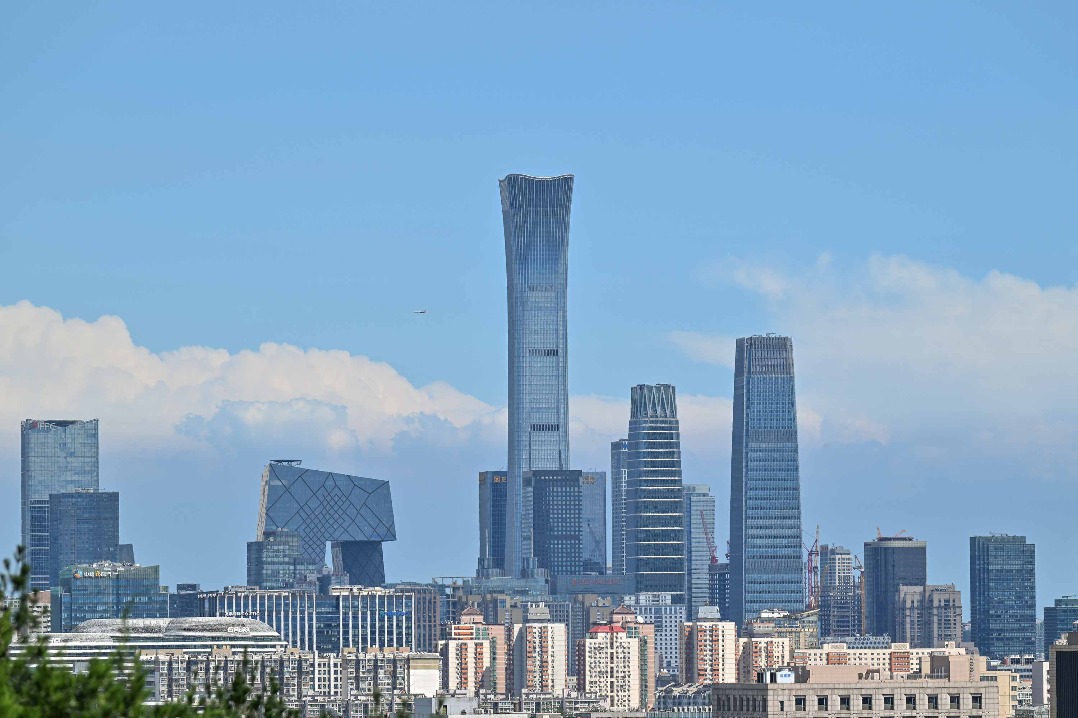China's auto industry accelerates toward intelligent transformation


BEIJING - Having surged to the forefront of the global new energy vehicle (NEV) market with their outstanding performance, Chinese automakers are exploring strategies to gain an advantage over their competitors in the more challenging latter phase of the market race, which is increasingly driven by intelligent development and artificial intelligence.
One of the latest efforts in this push is the 2024 World Intelligent Connected Vehicles Conference (WICV), held from Oct 17 to 19 in Beijing.
The WICV attracted over 250 auto firms and institutions from home and abroad, with more than 200 new technologies and products making their debut.
"Intelligent connected vehicles (ICVs) have become a focus of industry innovation, and Chinese automobiles are accelerating into a new stage with intelligence as their core competitiveness," said Li Shufu, chairman of Geely Holding Group, at the event.
Seizing the opportunities presented by intelligent technology and promoting China's transformation into an automotive powerhouse is a challenge the entire Chinese auto industry must address, he added.
Like many of China's leading car companies, Geely has made significant strides in intelligent innovation, driving advancements in areas such as automobile safety, human-machine interaction, intelligent driving, onboard chips and low-orbit satellites. The company is also committed to creating an integrated space-ground smart network.
According to Zhu Huarong, chairman of Chongqing Changan Automobile Co, Ltd, China's ICVs saw rapid growth this year, with sales projected to reach 17 million and a penetration rate surpassing 63 percent.
Stefan Mecha, CEO of the Volkswagen China Passenger Cars Brand, said that China actively fosters innovation opportunities through consistent government plans for ICV and NEV development, a tech-savvy consumer base, and an openness to technology within an advanced tech ecosystem.
A comprehensive industrial system for China's ICV sector has basically taken shape, covering products and technologies such as basic chips, sensors, computing platforms and chassis control, Minister of Industry and Information Technology Jin Zhuanglong said Thursday during the opening ceremony of WICV.
China leads the world in human-machine interaction and is rapidly advancing toward breakthroughs in technologies like steer-by-wire and active suspension technologies, among others, the minister noted.
According to Jin, the country's ICV sector currently boasts nearly 400 "little giant" firms, or novel elites of small and medium-sized enterprises that are engaged in manufacturing, specialize in a niche market and hold cutting-edge technologies. Five Chinese lidar companies have ranked among the global top 10 in sales, while nine automotive manufacturers are piloting conditional automated driving models.
Lei Jun, founder and CEO of tech giant Xiaomi, revealed at the WICV that the company is expected to deliver more than 20,000 units of its first self-developed NEV model SU7 this month, and achieve its annual delivery target of 100,000 vehicles in November.
The new model was released by the market newcomer in late March, and technological breakthroughs in key fields have been achieved, such as modeling design, batteries, intelligent driving and intelligent cockpits.
"In the next five years, the structure of the entire automotive industry will be reconstructed on a large scale," Lei said.
The CEO noted that the entire industry should engage in benign competition and work together to explore the international market. He also urged Chinese automakers to avoid redundant investments and focus on creating a smart automotive ecosystem.
Global players like Volkswagen are also speeding up their intelligent transformation in a bid to expand their presence in the Chinese market.
"We will invest consequently into the localization of our R&D activities to integrate ourselves much more strongly into the rapidly growing ecosystem for electric vehicles in China," said Ralf Brandstaetter, chairman and CEO of Volkswagen Group China.
In addition to building its largest development center outside Germany in the city of Hefei in east China, Volkswagen is also strengthening cooperation with local manufacturers like Xpeng and high-tech companies such as Horizon Robotics, Thundersoft and Gotion.
"This deep integration into the world's leading development network for ICVs will further expand our local innovative strength, but also provides us with a strategic advantage on the global markets in the mid-term," Brandstaetter said.
"China is driving the future of the automotive industry, and we are committed to being part of this journey in the era of ICVs," he added.
To support such rapid industrial development in China, more than 50 cities have designated over 32,000 kilometers of test routes for ICVs and upgraded about 10,000 kilometers of roads with smart technologies, according to the Ministry of Industry and Information Technology.




































